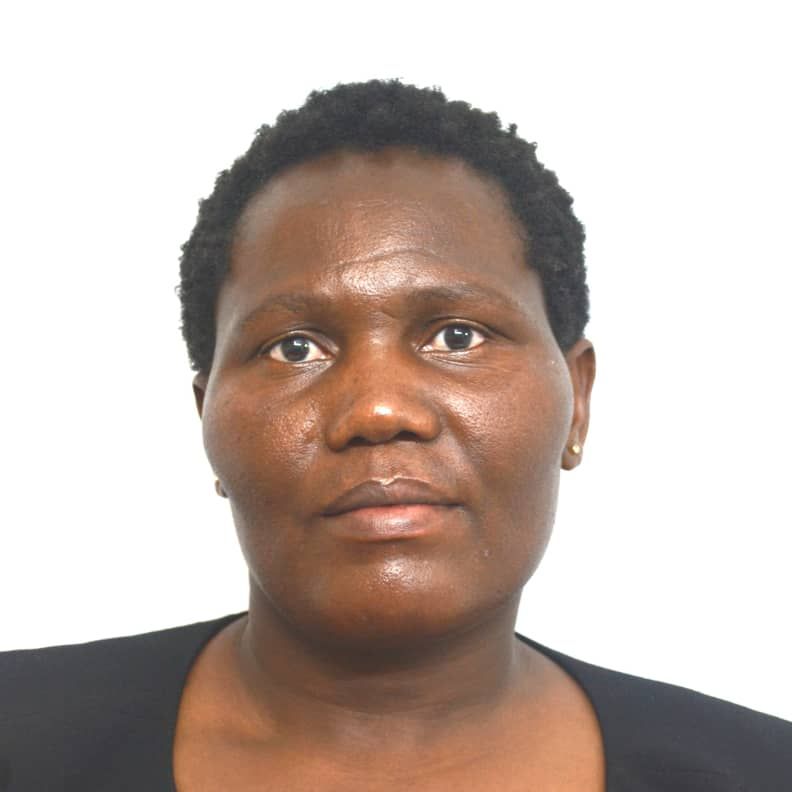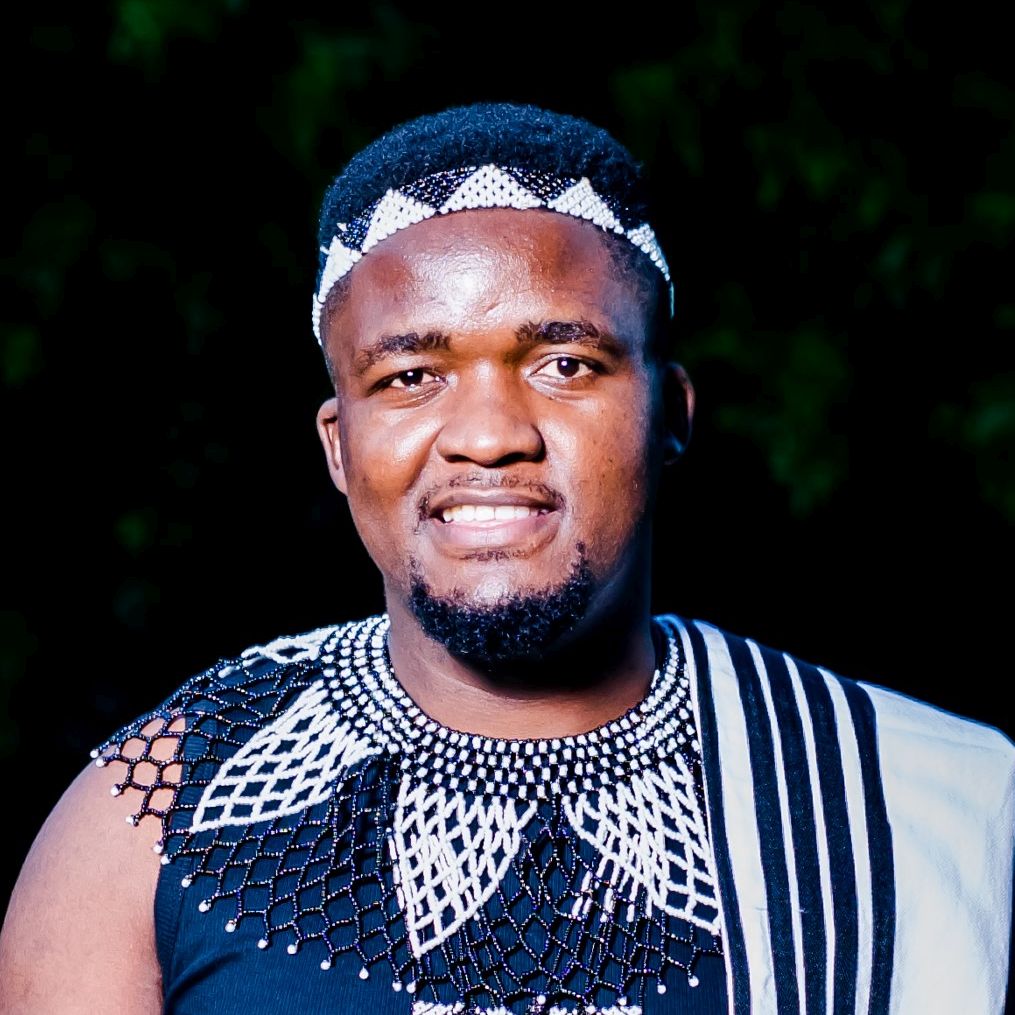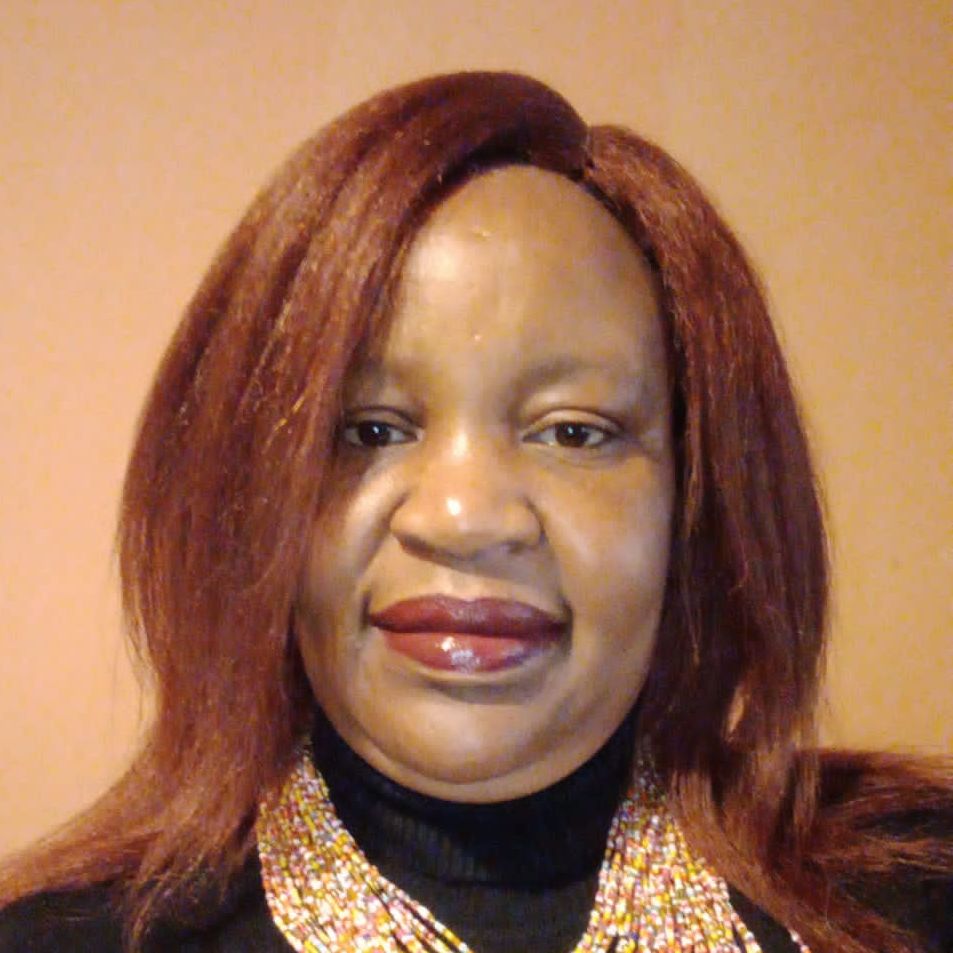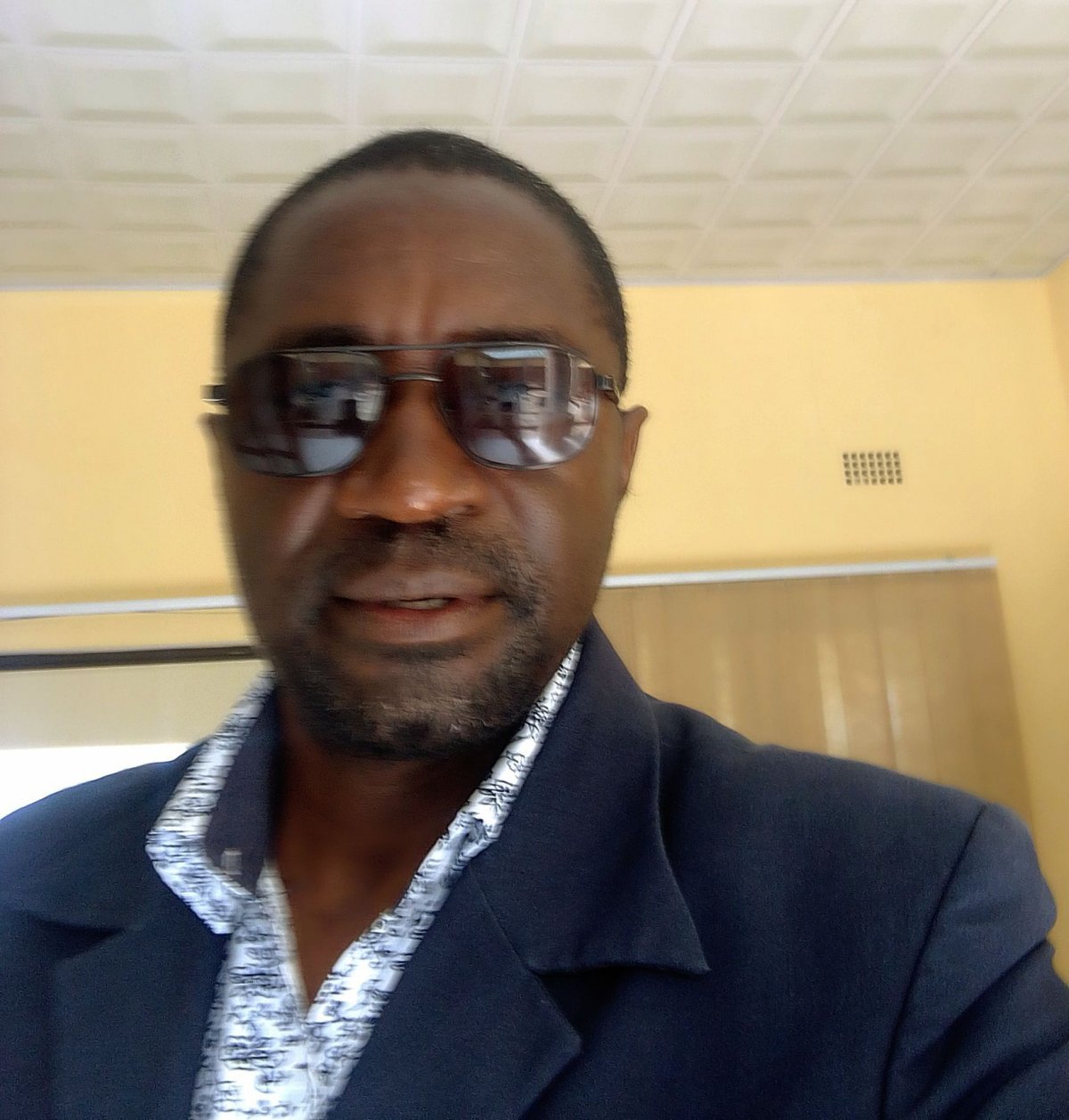Office-bearers
Executive committee
President: Prof Tendai Mangena (University
of the Free State)
Deputy President: Dr Maleshoane
Rapeane-Mathonsi (Durban University of Technology)
Secretary: Dr Yanga LP Majola (Tshwane
University of Technology)
Deputy Secretary: Dr Rethabile
Possa-Mogoera (University of Cape Town)
Treasurer: Prof Nhlanhla Mathonsi (University
of KwaZulu Natal)
Additional Members
Dr Mabohlokoa Khanyetsi (University of the
Free State)
Dr Vincent Jenjekwa (Midlands State
University and UNISA)
Dr Tebogo Jacob Rakgogo (Tshwane University
of Technology)
Ex-officio members
Editor-in-Chief Nomina Africana: Prof
Sambulo Ndlovu (Great Zimbabwe University)
Webmaster: Dr Jako Olivier (Commonwealth of Learning, Canada)

Prof. Tendai Mangena
Professor Tendai Mangena has a PhD in African literature from Leiden
University. She holds a
British Academy Global Professorship within the Centre for African Studies and the School of
Philosophy, Religion, and History of Science at Leeds. She taught for many
years at Great Zimbabwe University and is a Research Fellow in the Department
of English at the University of the Free State.
In 2020, she was a Fulbright
Research Scholar in the Department of Comparative Literature and Languages at
the University of California, Riverside, USA. Before that, she was an Alexander
von Humboldt Postdoctoral Fellow in the Department of Postcolonial Literary and
Cultural studies at Bremen University, in Germany from 2016 to 2018, and a
Humboldt Visiting Fellow in the same department from July-August 2019.
Her
research interests are at the intersections of Literary and cultural studies
with a focus on questions of gender, politics, power, and justice.

Dr Maleshoane Rapeane-Mathonsi
Maleshoane
Rapeane-Mathonsi is a Senior Lecturer in the Department of Media, Language and
Communication. She holds a PhD from the
University of Cape Town, where she started her academic career before moving to
the National University of Lesotho. She is a sociolinguist whose research
interests include work on the linguistic landscape of southern African cities,
and language differentiation and gender. She has co-authored a book, and published articles
on language and orality in peer-reviewed journals.
She is
currently the Deputy President of the Names Society of Southern Africa and has
served the society in different capacities, including as treasurer, secretary, Nomina Africana editor-in-chief and
hosting two successful conferences in Lesotho and South Africa, respectively.

Dr Yanga LP Majola
Dr Yanga LP Majola is an Academic Manager in the Faculty of
Humanities at the Mbombela Campus, an Institutional Coordinator of
Communications Skills Modules across Tshwane University of Technology (TUT) and
a Linguistics Lecturer in the Department of Applied Languages at the TUT. He is
a member trustee of the TUT Pension Fund Board. He has also worked as a
Language and Translation Lecturer at the Central University of Technology (CUT).
He holds a Diploma, a B-Tech, and a Master’s degree in Language Practice from
the Tshwane University of Technology. He completed his Ph.D. in African
Languages and Linguistics at the University of the Witwatersrand, Johannesburg.
He is currently enrolled for the Postgraduate Diploma in Higher Education at Rhodes
University in Makhanda, formerly Grahamstown. His teaching and research
interests and focus are on Computational Linguistics, the Fourth Industrial
Revolution, Machine Learning, isiBhaca, Dialectology, Onomastics,
Multilingualism, and Translation Studies. He has published articles in
DHET-accredited journals and is involved in the supervision of postgraduate
students and has presented papers at local and international conferences. As a
student, he also held various leadership roles at TUT, including two terms as
the ISRC Treasurer General and Postgraduate Forum Treasurer.

Dr Rethabile Possa-Mogoera
Dr Rethabile Possa-Mogoera is an appointed member of the Senate, Head of the Department of African Languages and Literatures, Senior lecturer, member of the Next Generation Professoriate Programme, and a Student Registration Advisor for the Faculty of Humanities at the University of Cape Town. Through her activism, Dr Possa-Mogoera has built strong leadership by serving at the Gender-Based Violence Tribunal as a staff assessor at UCT. She is the appointed Residence Warden for Roscommon house and a Deputy Warden at Forest Hill.
Dr Possa-Mogoera is a published author with several academic publications. She is currently a Sesotho editor for AVBOB poetry competition. She is recognized internationally as a keynote speaker for academic forums. Holds an extensive background in African literature: Folklore, Onomastics, Poetry, and research studies Sesotho language with the advantage of knowing two Sesotho orthographies. Demonstrated in her contributions to the modernization of spoken language and text with a passion to boast African Languages.
Dr Possa-Mogoera has shown capacity in her performance as multifaceted leader serving at external boards as a non-executive and executive member earnestly. Amongst her passions, she extends herself as a ladder for women to lead in spaces less granted to them, mentor, motivational speaker, and author on gender-based violence. She has been on numerous platforms such as Transnet, SABC, ENCA, Sisters incorporated, schools in the Western Cape, and Women’s forums empowering women locally and internationally.

Prof Nhlanhla Mathonsi
Professor
Nhlanhla Mathonsi holds a PhD degree (in Literature) from the University of
Natal (Durban). He is currently contracted to two Universities, UKZN (Honorary
Research Associate) and DUT (Lecturer and research mentor) in the Faculty of
Arts and Design. His academic career started at University of Natal –Durban (UND)
wherein he became Head of Department (at the Faculty of Human Sciences -UND)
and Head of School at the College of Humanities (UKZN).
Nhlanhla
Mathonsi has successfully supervised and graduated both MA and PhD students. His
publications are in different fields, namely Syntax, Semantics, Sociolinguistics,
Phonology, Folklore, Onomastics, Gender studies and Literature. His latest
interest (shared with his wife, Maleshoane (Dr)) is on issues of lexicality and
grammaticality of words in Bantu languages. He has served in several executive committees
of professional bodies and is a past president of Names Society of southern
Africa (NSSA).

Dr Mabohlokoa Khanyetsi
Dr. Palesa Mabohlokoa Khotso Khanyetsi attained her Doctoral degree in Languages, Linguistics, and Literature from the University of South Africa. She is a professional with experience stretching from high school teaching, college tutorship, University Lecturing, and academic supervision, and is a researcher. She is a professional with 24 years of extensive experience in teaching Southern Sotho.
She has significantly contributed to the training of versatile Sesotho language teachers for a decade at the Lesotho College of Education. Dr. Khotso Khanyetsi’s research trajectory is on Masculinities, Femininity, Language, Literature, Culture, Onomastics, Toponymy, and Oral traditions. She joined the University of the Free State in 2021 as a lecturer. She is the current Subject Head of the African Languages Department at Qwaqwa Campus.
She is a motivated, ardent, vibrant, and focused academic of the 21st century. Her academic acumen saw her scooping the 2020 Research Award from the University of the Free State (UFS), Faculty of Humanities at Qwaqwa Campus within a short period at UFS. Dr. Khotso Khanyetsi is an active member of academic associations including the NSSA.

Dr Vincent Jenjekwa
Dr Vincent Jenjekwa has a Doctoral degree in Linguistics from the University of South Africa. For his PHD, he worked on A Toponymic Perspective on Zimbabwe’s Post-2000 Land Reform Programme (Third Chimurenga).
Currently, he is a full-time Research Fellow at Midlands State University National Language Institute (MSUNLI), in Zimbabwe. His key responsibility at MSUNLI are language research and consultancy. He has published several book chapters and articles in peer reviewed journals in the field of Onomastics, Linguistic Landscapes, Language Policy Issues, Sociolinguistics, Indigenous Knowledge Systems, Language in Education, and Academic and Professional Communication.
He co-edited Sociolinguistics and Multilingual Education in Zimbabwe (Midlands State University Press and Publications, 2021). His other edited volume, Zimbabwe’s History, Heritage and Culture: A Names Perspective is forthcoming (publisher to be advised). He has also presented papers at several local and international conferences.

Dr Tebogo Jacob Rakgogo
Dr Tebogo Jacob Rakgogo is an academic at the Tshwane University of Technology (TUT), Faculty of Humanities, Department of Applied Languages. He has completed National Diploma, B-Tech and Master’s Degree in Language Practice at Tshwane University of Technology. He has also managed to complete Postgraduate Certificate in Education (Senior Phase and FET), Honours Bachelor of Education specialising with Educational Management and Honours Bachelor of Arts in Translation Studies from the University of South Africa. His PhD in Onomastics was completed in record time in the year 2019 at the University of the Witwatersrand, Johannesburg. He has more than 10 years’ experience in South Africa´s Higher Education sector. He is an external examiner for the following universities: University of Pretoria, University of the Witwatersrand, Johannesburg, University of Pretoria and the University of Johannesburg.
His area of research includes onomastics, sociolinguistics, dialectology, and language policy and planning. He has several publications in peer-reviewed DHET accredited Journals and more than 18 conference presentations in local and international conferences. He is an external examiner for the following universities: University of the Witwatersrand (Wits), University of Pretoria, University of Johannesburg, Central University of Technology and the National University of Lesotho.
He is involved in the Pan South African Language Board (PanSALB) as a Board Member on the Sesotho sa Leboa National Language Body and Sesotho sa Leboa National Lexicography Unit respectively. He was a member of the TUT Institutional Forum where he also served as the Chairperson of the structure (IF). He is also formed part of the TUT Council as an observer. He is the first President of the Humanities and Social Sciences Alumni Association (HSSAA) under the umbrella of the National Institute for Humanities and Social Sciences (NIHSS). He is currently forming part of the TUT Task Team that is currently reviewing the 2005 language policy where he is also forming part of the Coordination Team.

Prof Sambulo Ndlovu
Professor Sambulo Ndlovu is a Professor of linguistics at the University
of Eswatini and Great Zimbabwe University. He is also a Humboldt research
fellow in the Department of Anthropology and African Studies at the Johannes
Gutenberg University in Mainz, Germany. He holds a PhD in linguistics from the
University of Cape Town, and his research areas are onomastics, socio- and
anthropological linguistics, and cultural studies. He has guest edited journals
in the Mouton De Gruyter and John Benjamin’s publishing houses. He is also a
member of the scientific board for the International Symposium on Place Names
(ISPN) and editorial board member for The Mouth Journal (University of Cologne).
He is also a
commissioned researcher on morpho-syntactic micro-variation in African youth
language for DFG (German Research Council), and was part of the workshop
conveners on African youth languages for the 9th
International Conference on Bantu languages (Bantu9) 2022, and the World Congress of
African Linguistics 10 (WOCAL10). His latest books are Naming and
othering in Africa: Imagining supremacy and inferiority through language (Routledge),
and Onomastic
performatives: Names and naming from an anthropological linguistic perspective, (Mouton De Gruyter).
